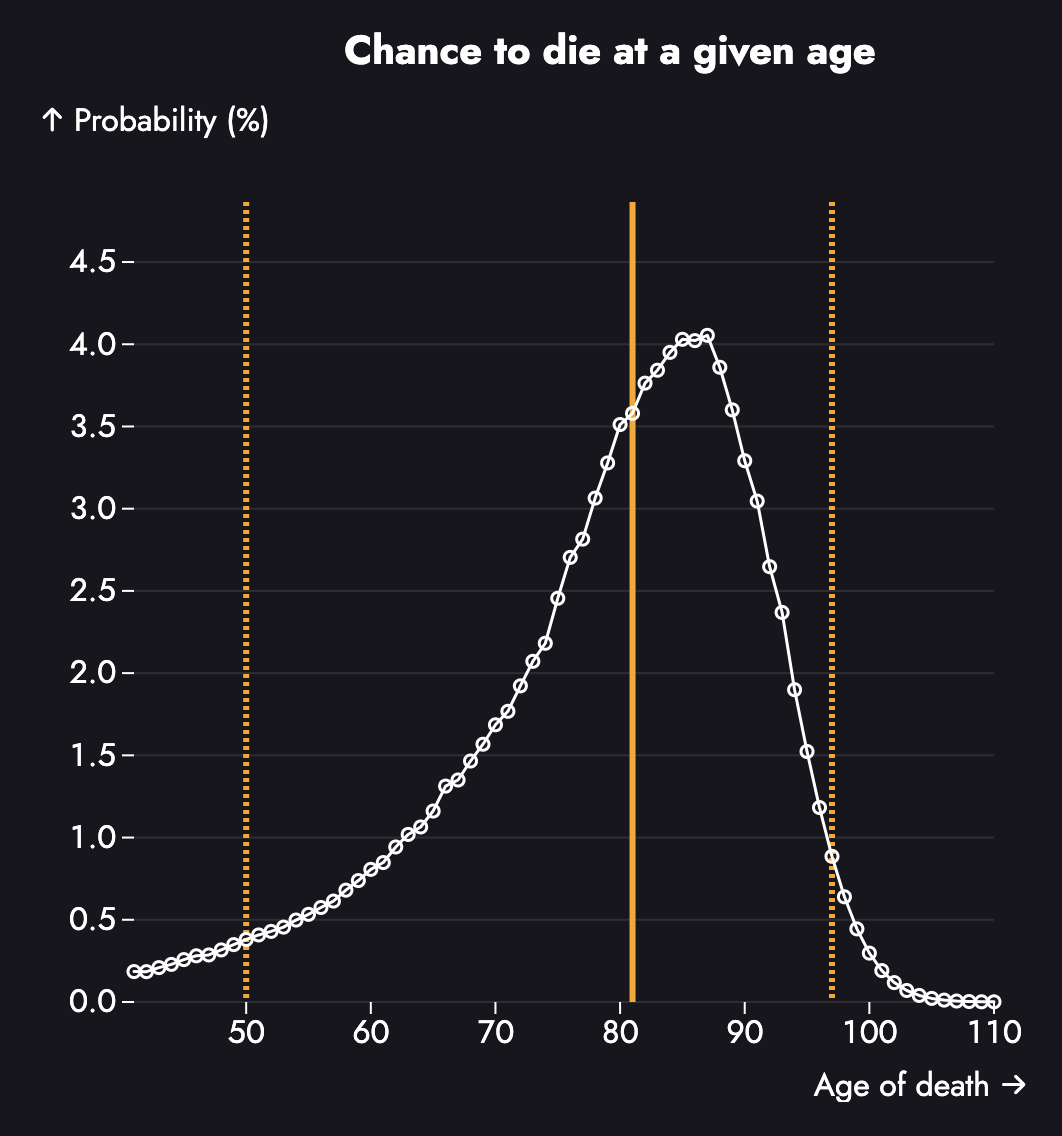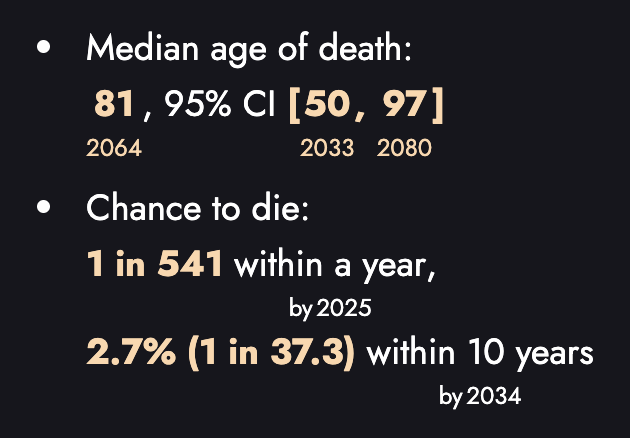Life expectancy is a distribution
Think about how long you might live.
You might think to past family members, and the age at which they passed away. You might have seen statistics about life expectancy in your country. Perhaps you read that “In Sweden men live to 82.” You will drift towards thinking about a specific number that feels plausible, but it might feel fuzzy.
It feels fuzzy because it is fuzzy — life expectancy is a distribution, not a single number. It’s a distribution that changes over time, and it’s a distribution that changes based on your way of living, and the random health events that strike across the course of your life.
This matters for us individually because, if you are planning to do great things later in life, there is some chance you will not survive that long. And if you are planning for retirement, there is some chance you will live longer than you expect.
Seeing your distribution
I’ve created a tool to help you estimate the range of your life expectancy. You can try it right now.
You tell it the country you live in, your sex and your current age, and it provides you a distribution like this.

The distribution indicates your chance of dying at each age. The thick orange line is the median, the age at which only 50% of people like you are forecast to be surving. The two dotted lines indicate the 95% confidence interval for the ages you are likely to live to.
I also summarise this in text, and help you like the ages you may live to in calendar years:

If you are like me, you will rarely think of your lifespan in this way, neither your odds of dying relatively soon, nor the idea that you might live to a year like 2064, and the reality of all the change the world will experience between now and then.
A new perspective
In Buddist, Stoic and other traditions, we’re encouraged to reflect on death in order to remind us of the impermanence of things, and to help us live a life that is more in line with our values. This visualisation reminds us that our time is finite, and that there is some small chance that it may be much shorter than we expected.
On the other end, seeing that it’s also possible that we live a long time, and even to specific years like 2080, we can reflect that we will continue to be part of the world through all that time. We too have an active stake and responsibility in making sure that the world that emerges then is one we would be proud and excited to live to see.